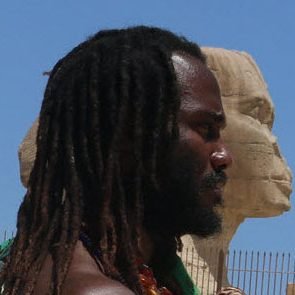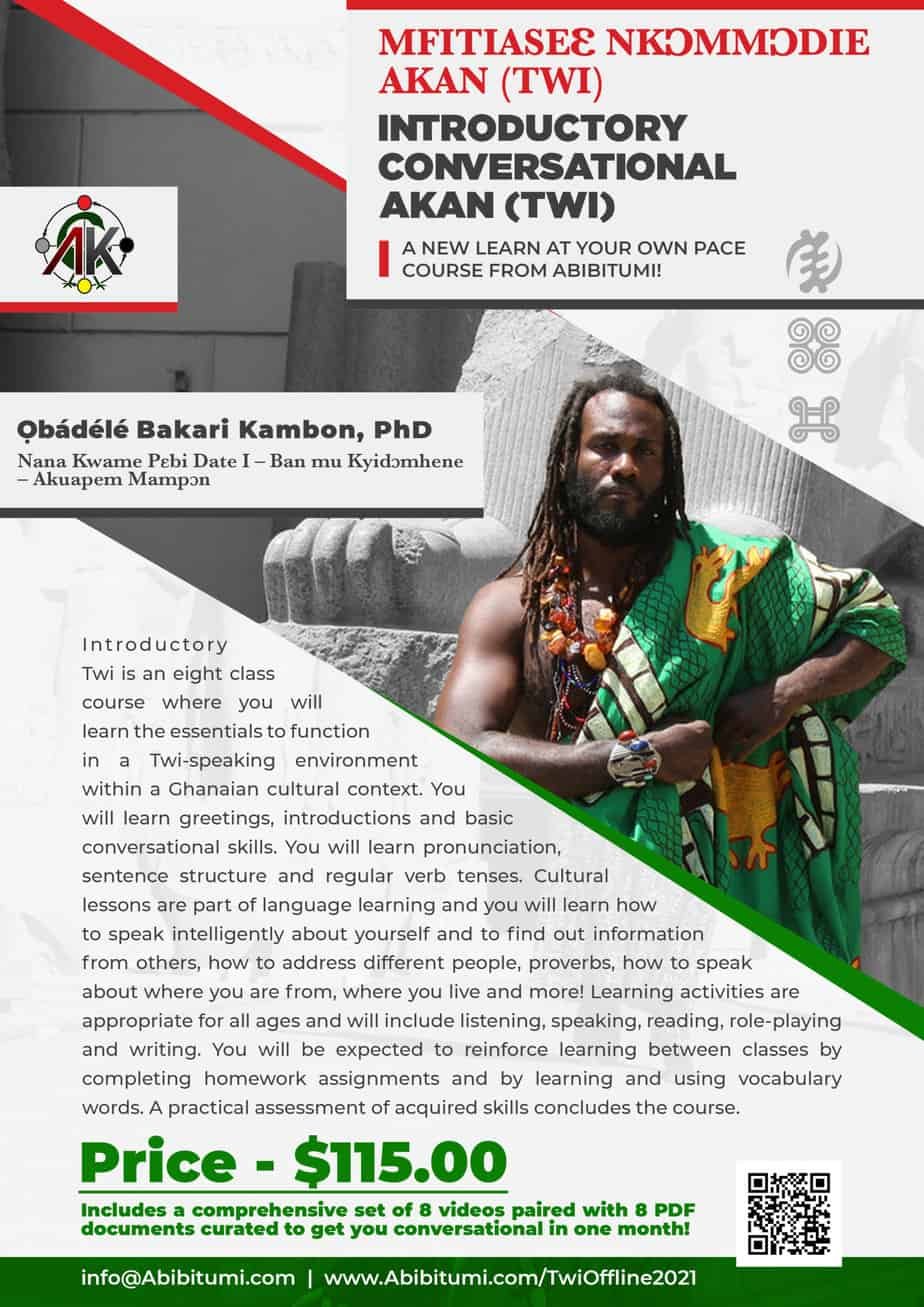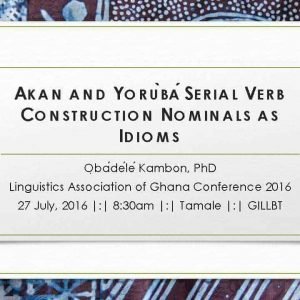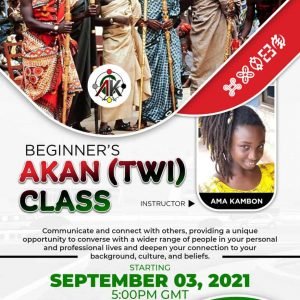$115.00
Description
Ọbádélé Bakari Kambɔn, PhD © Abibitumi.com 2021
Nana Kwame Pɛbi Date I – Ban mu Kyidɔmhene – Akuapem Mampɔn
Course Description
Introductory Twi is an eight-class course where you will learn the essentials to function in a Twi-speaking environment within a Ghanaian cultural context. You will learn greetings, introductions, and basic conversational skills. You will learn pronunciation, sentence structure and regular verb tenses. Cultural lessons are part of language learning, and you will learn how to speak intelligently about yourself and to find out information from others, how to address different people, proverbs, how to speak about where you are from, where you live and more! Learning activities are appropriate for all ages and will include listening, speaking, reading, role-playing, and writing. You will be expected to reinforce learning between classes by completing homework assignments and by learning and using vocabulary words. A practical assessment of acquired skills concludes the course.
Mfitiaseɛ Nkɔmmɔdie Akan (Twi) Adesua Nhyehyɛɛ
Introductory Conversational Akan (Twi) Course Syllabus
-
Adesuadeɛ a ɛdi kan: Twi Kasa nnyegyeɛ (Sounds of the Twi language), Nsɛmfua afoforɔ (new vocabulary)
-
Adesuadeɛ a ɛtɔ so mmienu: Apɔmuden ho nkyea (asking after one’s health); Mmerɛ ahodoɔ nkyea (greetings for various times)
-
Adesuadeɛ a ɛtɔ so mmiɛnsa: Wo din (Your name)
-
Adesuadeɛ a ɛtɔ so nnan: Baabi a wofiri (Where you’re from); Baabi a wote (Where you live)
-
Adesuadeɛ a ɛtɔ so nnum: Deɛ wopɛ (That which you like)
-
Adesuadeɛ a ɛtɔ so nsia: Deɛ woyɛ (That which you do)
-
Adesuadeɛ a ɛtɔ so nson: Mfeɛ a woadi (The years that you have lived (age)); Wo ho asɛm (About you); Sɛnea wo nipadua teɛ (Physical description)
-
Adesuadeɛ a ɛtɔ so nwɔtwe: Twi Nsɔhwɛ (Twi exam); Awieeɛ dwumadie (Work on final projects)
Lesson Structure
1.Introduction – lesson review
2.Overview – outline learning objectives
3.Lesson – using listening, speaking, reading and other activities
4.Introduce new vocabulary
5.Exercises and practice
6.Recap the day’s lesson and assign week’s homework.
Lesson Components (presented in any order)
-
Nsɛmfua afoforɔ (new vocabulary)
-
Nkɔmmɔdie (dialogue) i.e using the language
-
Dwumadie ahodoɔ (exercises), i.e reciting numbers, place names/locations, etc…
-
Adetie ne asɛmka dwumadie (listening and speaking exercises)
-
Akenkan ne adetwerɛ dwumadie (reading and writing exercises)
-
Nsɛm bi fa amammerɛ ho (cultural notes) i.e. Akan culture and worldview
-
Nsɛm bi fa kasa mmara ho (grammar notes)
-
Fie dwumadie (homework)




![Premium Intro Conversational Akan (Twi) 101 [Live Streamed] Class Begins October 8, 2022](https://obadelekambon.com/wp-content/uploads/2022/08/PremiumTwi-scaled-1-300x300.jpg)
![[Video+61 Slides] UNILAG: Akan Ananse Stories, Yorùbá Ìjàpá Tales, and the Dikènga Theory: Worldview and Structure](https://obadelekambon.com/wp-content/uploads/2022/07/ananseijapa-300x300.jpg)
Leave a Reply